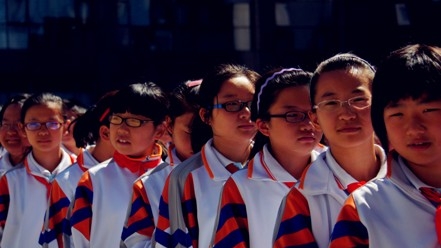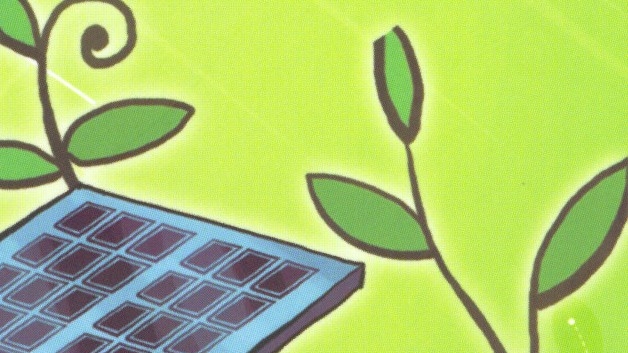Two million students and teachers in schools across Beijing will have access to green electricity thanks to a renewable energy program supported by the local and central governments.
The “Sunshine Schools” Program, which is to install solar photovoltaic (PV) systems with a capacity of 100 mega-watts in about 1,000 public schools and colleges in Beijing, kicked off on September 14. The program is China’s biggest rooftop solar PV project in the public sector to date.
China’s Ministry of Finance, the National Energy Administration and other national departments provided 560 million yuan (about US$88.59 million) to the program, while it is also expected to receive financing from the World Bank as part of the Beijing Rooftop Solar PV Scale-Up (Sunshine Schools) Project. It aims to support Beijing and China’s efforts to expand the use of renewable energy to reduce carbon emissions and build a resource-efficient, environmentally-friendly society.
"Supporting the Sunshine Schools Program is in line with the Bank’s corporate commitment to increase renewable energy investments,” said Chongwu Sun, a senior environmental specialist at the World Bank. “It is also great to make such investment in schools, as young generations can learn and contribute through their participation, which may help them open minds, think more about the environment and bring long-term impact to themselves and their families.”
Embracing Solar Energy
To promote the program, the Beijing Municipal Development and Reform Commission and Beijing Municipal Education Commission organized a “Sunshine School” Innovation Contest, sponsored by the World Bank, inviting primary and secondary school students to submit proposals for using solar power and other renewable energy on their campuses.
The results of the contest were announced on the same day as the program started. Thirty-six schools won “Most Innovative Idea” awards, while 56 students were named “Little Experts on Sunshine School Design”.
Among the awarding-winning proposals were installing solar lights for illuminating streets on campus and building solar-powered classrooms of zero carbon emission.
Beijing is rich in solar power. “Integrating the use of solar energy into the construction of schools and for educational purposes is an innovation,” said Wang Yingjian, deputy head of the Office of Beijing Energy and Economic Operating Adjustment Leading Group, at the award ceremony.
Thus, the "Sunshine Schools" program is also setting an example for other sectors in Beijing and elsewhere in China, he said.
China's investment in solar power generation is expected to reach 250 billion yuan ($39.5 billion) during the 12th Five-Year Plan (2011-15), according to a development plan released by the National Energy Administration on September 12.
The city of Beijing is keen on promoting renewable energy to help fight pollution and climate change. In 2011, renewable energy accounted for 4 percent of the city’s total energy consumption, twice as much as in 2005. This amounts to 2.8 million metric tons of coal equivalent.
"The development of ‘Sunshine Schools’ will not only promote the use of solar power and improve the environment, but will also help educate youngsters about renewable energy and raise public awareness on energy saving,” said Hong Feng, Vice Mayor of Beijing, at the award ceremony.
Leaving sustainable legacies on campus
Schools in Beijing also see the whole “Sunshine Schools” campaign as a good opportunity to organize and make immediate and lasting impact on a school’s carbon emissions and campus culture.
"We believe that to educate a young student will impact his or her family and eventually influence the whole society,” said Shen Jun, Principal of Beijing Bayi High School.
Young students are eager to put in the hard work it takes to see real change set in.
In the Middle School Attached to Beijing Jiaotong University, environmental education has become part of the extra-curriculum activities – students established a “green” bank where they stored recycled stuff, joined the worldwide event “Earth Hour” organized by the World Wildlife Fund (WWF), and volunteered to share responsibility of tending the campus lawn.
In Beijing No.2 Railway Middle School, students recycled cardboards from home to make display boards with “green” tips they collected in the past summer vacation. As the new school year began, they presented their beautifully-designed products in front of the school buildings.
"In the past two months, whenever I read tips from newspapers or the Internet on how to consume electricity, water and other resources smartly, I took notes of them. So now I can share these good practices with my schoolmates,” said Yang Pengfei, a sophomore, “I feel this is my way to make a difference, to contribute to energy saving in my school and even the whole city of Beijing.”


